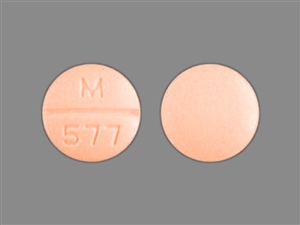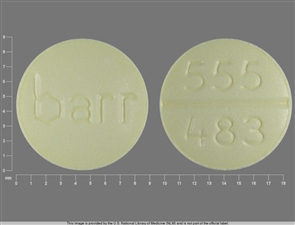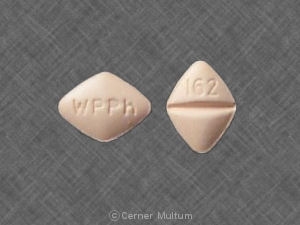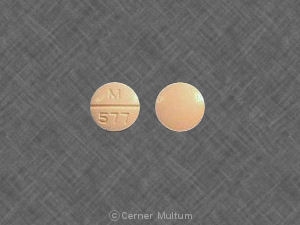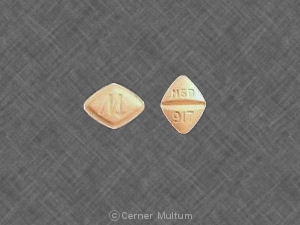hydrochlorothiazide and amiloride
What is the most important information I should know about hydrochlorothiazide and amiloride?
You should not use this medicine if you have kidney disease, urination problems, diabetes, or high levels of potassium in your blood.
Some medicines can cause unwanted or dangerous effects when used with hydrochlorothiazide and amiloride. Your doctor may need to change your treatment plan if you use potassium supplements or certain diuretics (spironolactone, triamterene).
If you have diabetes, do not use hydrochlorothiazide and amiloride together with any medication that contains aliskiren (Amturnide, Tekturna, Tekamlo, Valturna).
What is hydrochlorothiazide and amiloride?
Hydrochlorothiazide is a thiazide diuretic (water pill) that helps prevent your body from absorbing too much salt, which can cause fluid retention. Amiloride is a potassium sparing-diuretic that also prevents your body from absorbing too much salt and keeps your potassium levels from getting too low. The combination of hydrochlorothiazide and amiloride is used to treat fluid retention (edema) and high blood pressure (hypertension). Hydrochlorothiazide and amiloride may also be used for purposes not listed in this medication guide.
What should I discuss with my healthcare provider before taking hydrochlorothiazide and amiloride?
You should not use this medication if you are allergic to hydrochlorothiazide or amiloride, or if you have:
- kidney disease or are unable to urinate;
- high potassium levels (hyperkalemia); or
- if you are taking potassium supplements.
Some medicines can cause unwanted or dangerous effects when used with hydrochlorothiazide and amiloride. Your doctor may need to change your treatment plan if you use potassium supplements or certain diuretics (spironolactone, triamterene).
If you have diabetes, do not use hydrochlorothiazide and amiloride together with any medication that contains aliskiren (Amturnide, Tekturna, Tekamlo, Valturna). To make sure hydrochlorothiazide and amiloride is safe for you, tell your doctor if you have:
- high cholesterol, heart disease, coronary artery disease;
- cirrhosis or other liver disease;
- glaucoma;
- a breathing disorder;
- gout; or
- an allergy to sulfa drugs or penicillin.
This medication is not expected to be harmful to an unborn baby. Tell your doctor if you are pregnant or plan to become pregnant during treatment.
Hydrochlorothiazide can pass into breast milk and may harm a nursing baby. You should not breast-feed while you are using hydrochlorothiazide and amiloride.
How should I take hydrochlorothiazide and amiloride?
Follow all directions on your prescription label. Do not take this medicine in larger or smaller amounts or for longer than recommended.
Take hydrochlorothiazide and amiloride with food.
Your blood pressure will need to be checked often. Your blood and urine may also be tested if you have been vomiting or are dehydrated.
If you need surgery or medical tests, tell the doctor ahead of time that you are taking medication that contains hydrochlorothiazide. You may need to stop using the medicine for a short time.
If you are being treated for high blood pressure, keep using this medication even if you feel well. High blood pressure often has no symptoms. You may need to use blood pressure medication for the rest of your life.
Store at room temperature away from moisture, heat, and light. Do not freeze.
What happens if I miss a dose?
Take the missed dose as soon as you remember. Skip the missed dose if it is almost time for your next scheduled dose. Do not take extra medicine to make up the missed dose.
What happens if I overdose?
Seek emergency medical attention or call the Poison Help line at 1-800-222-1222.
What should I avoid while taking hydrochlorothiazide and amiloride?
Drinking alcohol can increase certain side effects of hydrochlorothiazide and amiloride.
Do not use salt substitutes or low-sodium milk products that contain potassium. These products could cause your potassium levels to get too high while you are taking hydrochlorothiazide and amiloride.
Avoid a diet high in salt. Too much salt will cause your body to retain water and can make this medication less effective.
This medication may impair your thinking or reactions. Be careful if you drive or do anything that requires you to be alert.
Avoid becoming overheated or dehydrated during exercise and in hot weather. Follow your doctor's instructions about the type and amount of liquids you should drink. In some cases, drinking too much liquid can be as unsafe as not drinking enough.
What are the possible side effects of hydrochlorothiazide and amiloride?
Get emergency medical help if you have signs of an allergic reaction: hives; difficulty breathing; swelling of your face, lips, tongue, or throat.
Call your doctor at once if you have:
- a light-headed feeling, like you might pass out;
- high sodium--headache, confusion, slurred speech, hallucinations, vomiting, severe weakness, muscle cramps, loss of coordination, feeling unsteady, shallow breathing; or
- high potassium--slow heart rate, weak pulse, muscle weakness, tingly feeling.
Common side effects may include:
- diarrhea, constipation;
- mild stomach pain; or
- tired feeling.
This is not a complete list of side effects and others may occur. Call your doctor for medical advice about side effects. You may report side effects to FDA at 1-800-FDA-1088.
What other drugs will affect hydrochlorothiazide and amiloride?
Tell your doctor if you regularly use other medicines that make you light-headed (such as cold medicine, a sleeping pill, narcotic pain medicine, muscle relaxer, or medicine for anxiety, depression, or seizures). They can add to the side effects of hydrochlorothiazide and amiloride.
Tell your doctor about all medicines you use, and those you start or stop using during your treatment with hydrochlorothiazide and amiloride, especially:
- lithium;
- tacrolimus; or
- other blood pressure medications.
This list is not complete. Other drugs may interact with hydrochlorothiazide and amiloride, including prescription and over-the-counter medicines, vitamins, and herbal products. Not all possible interactions are listed in this medication guide.
Where can I get more information?
Your pharmacist can provide more information about hydrochlorothiazide and amiloride.
Remember, keep this and all other medicines out of the reach of children, never share your medicines with others, and use this medication only for the indication prescribed.
Every effort has been made to ensure that the information provided by Cerner Multum, Inc. ('Multum') is accurate, up-to-date, and complete, but no guarantee is made to that effect. Drug information contained herein may be time sensitive. Multum information has been compiled for use by healthcare practitioners and consumers in the United States and therefore Multum does not warrant that uses outside of the United States are appropriate, unless specifically indicated otherwise. Multum's drug information does not endorse drugs, diagnose patients or recommend therapy. Multum's drug information is an informational resource designed to assist licensed healthcare practitioners in caring for their patients and/or to serve consumers viewing this service as a supplement to, and not a substitute for, the expertise, skill, knowledge and judgment of healthcare practitioners. The absence of a warning for a given drug or drug combination in no way should be construed to indicate that the drug or drug combination is safe, effective or appropriate for any given patient. Multum does not assume any responsibility for any aspect of healthcare administered with the aid of information Multum provides. The information contained herein is not intended to cover all possible uses, directions, precautions, warnings, drug interactions, allergic reactions, or adverse effects. If you have questions about the drugs you are taking, check with your doctor, nurse or pharmacist.
Copyright 1996-2020 Cerner Multum, Inc. Version: 6.02. Revision date: 12/2/2015.
|
 |
|
